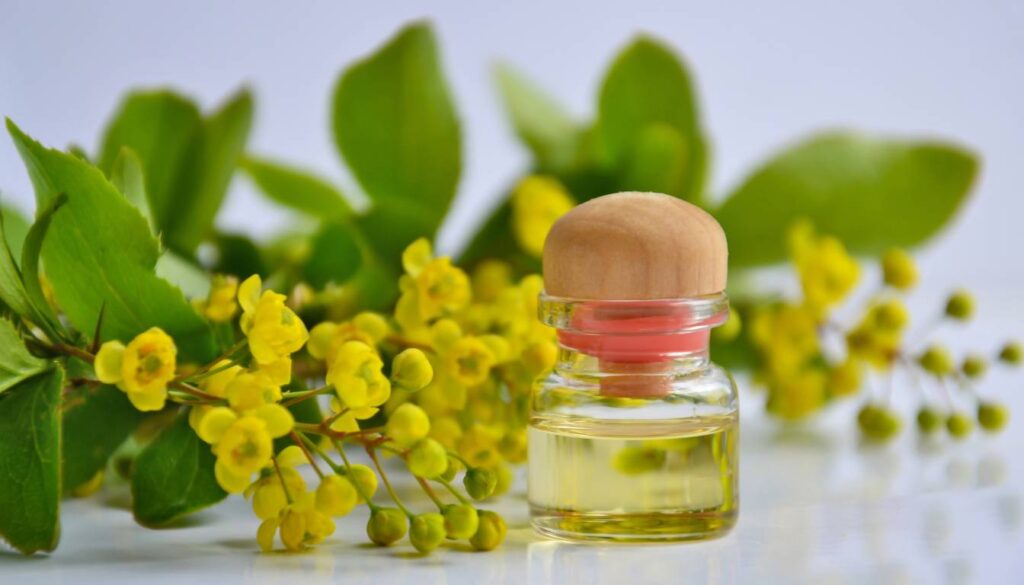Can herbal remedies cause headaches? Potentially, yes, but typically only in certain situations, such as allergic reactions or side effects. While not common, it can happen. Have you ever found yourself reaching for a natural remedy, only to be met with an unexpected headache? Believe me, even as someone who highly values herbal treatments, I’ve faced this perplexing situation myself.
After diving into extensive research and picking the brains of health professionals, I discovered that certain herbs can indeed trigger or escalate headaches. So stick around because we’re about to delve into the potential suspects behind these bewildering side effects, arm you with knowledge on how to safely utilize your supplements, and explore nature’s own headache soothers – it’s high time those relentless pains hit the road!
Understanding Herbal Supplements And Can Herbal Remedies Cause Headache?
Herbal supplements are natural products made from plants and their extracts, which are commonly used for various health purposes. They can come in the form of capsules, tablets, liquids, or powders.
Some common ingredients found in herbal supplements include Echinacea, garlic, ginkgo biloba, ginseng, St. John’s wort, valerian root, and grapefruit extract.
What they are – Can Herbal Remedies Cause Headache?
Herbal remedies come from plants and are used in the treatment of various health conditions. They exist as teas, oils, syrups, powders, tablets, or capsules. As a natural approach to healthcare, people use them for issues ranging from common colds to chronic diseases like diabetes.
Despite their plant origin and wide usage, however, they aren’t devoid of potential risks such as headaches and other side effects when consumed improperly or mixed with certain medications.
Common ingredients
Herbal remedies for headaches contain a wide variety of ingredients. These can include:
- Echinacea: Often used to boost the immune system, it can cause side effects like dizziness and nausea.
- Garlic: Known for its heart benefits, it may lead to an upset stomach.
- Ginkgo Biloba: Promotes good brain health but might intensify headache symptoms.
- Ginseng: Boosts energy levels but potentially leads to restlessness and sleep problems.
- St John’s wort: Shown to lessen migraine symptoms in some studies, it may also induce light sensitivity or skin reactions.
- Valerian Root: Helps with sleep disorders but could result in dizziness or mental dullness.
- Grapefruit: While beneficial for heart health, it might interact negatively with certain medications causing adverse effects such as headaches.
Potentially Can Herbal Remedies Cause Headache?

Certain herbal remedies have the potential to cause headaches, including Echinacea, garlic, Ginkgo biloba, ginseng, St. John’s wort, valerian root, and grapefruit.
Echinacea – Get Yours Here. Highest Quality!
Echinacea, a popular herb known for boosting the immune system, might not be an ideal choice when it comes to headache relief. Many people take this herbal remedy without realizing that it can occasionally trigger headaches, especially among those with a history of migraines.
It also has some other potential side effects such as dizziness and nausea. Despite its reputation for enhancing immunity, Echinacea may prove problematic for individuals dealing specifically with headache disorders.
Therefore, using it requires caution to avoid exacerbating symptoms rather than relieving them.
Garlic – Get The Perfect Garlic Extract Here
Garlic is a commonly used herb that may have potentially harmful effects on people suffering from headaches. While garlic is known for its many health benefits, it can sometimes trigger migraines or worsen headache symptoms in certain individuals.
This could be due to the strong odor and taste of garlic, which can be overwhelming and irritating to sensitive individuals. It’s important to be mindful of how your body responds to garlic consumption and consider reducing or eliminating it from your diet if you experience headaches after consuming it.
Ginkgo biloba – Get Yours Here
Ginkgo biloba is a popular herbal remedy that is often used for its potential cognitive benefits. However, when it comes to headaches, Ginkgo biloba may not be the best choice. This herb has been known to worsen migraine symptoms in some individuals.
While more research is needed to fully understand the effects of Ginkgo biloba on headaches, it’s important to exercise caution when taking this herbal supplement, especially if you suffer from migraines.
If you experience any adverse side effects like headache or nausea while using Ginkgo biloba, it is advisable to discontinue use and consult with a healthcare professional for further guidance.
Ginseng – Get Yours Here.
Ginseng is a popular herbal remedy that is often used for its potential health benefits. However, it’s important to be aware that ginseng may have some side effects, including headaches.
While ginseng is generally considered safe when used in moderation, excessive consumption or long-term use can sometimes lead to headaches. It’s also worth noting that ginseng may interact with certain medications, so it’s important to consult with a healthcare professional before taking any herbal remedies containing ginseng if you are currently on medication for headaches or other conditions.
Nature’s Way Premium St. John’s Wort Herb – Get Yours Here.
St. John’s wort is an herbal remedy that has shown potential for both helping and worsening migraine symptoms, depending on the individual. Some studies have found that St. John’s wort can reduce the severity and frequency of migraines in certain people.
However, it is important to note that this herb may not work for everyone and could potentially exacerbate headache symptoms in others. As with any herbal supplement, it is crucial to discuss its use with a healthcare provider before incorporating it into your headache management plan to ensure safety and effectiveness.
Monitoring for any potential side effects or interactions with other medications is also essential when considering St. John’s wort as a natural option for headache relief.
Valerian Root – Get Yours Here.
Valerian root is another herbal remedy that may have an impact on headaches. While it is commonly used as a sleep aid, there are some reports of valerian root causing headaches in certain individuals.
It is important to note that the effect of valerian root on headaches can vary from person to person, and more research is needed to fully understand its potential benefits and side effects.
If you experience headaches while taking valerian root or any other herbal supplement, it’s best to consult with your healthcare provider for personalized advice.
Grapefruit – Get Yours Here
Grapefruit is another potentially harmful herbal remedy for headaches. While grapefruits are known for their many health benefits, they can interact with certain medications and cause headaches as a side effect.
Grapefruit contains compounds that inhibit the enzymes responsible for breaking down certain drugs in the body, leading to higher levels of these medications in the bloodstream. This can result in an increased risk of experiencing headaches or other side effects from these medications.
Therefore, it’s important to be cautious when taking grapefruit or grapefruit juice while also using prescription or over-the-counter headache medications. Consult with your doctor before incorporating grapefruit into your herbal remedies regimen to ensure it doesn’t interfere with any existing treatment plans.
Safety Precautions for Taking Herbal Remedies with Headaches
Before trying any herbal remedies for headaches, it’s important to take safety precautions and consult with a doctor. Be aware of potential interactions with medication and monitor for side effects.
Stay informed to make the best decision for your health. Read on to learn more about safe herbal options for headache relief.
Consult with a doctor
Before starting any herbal remedies for headache relief, it is crucial to consult with a doctor. They can provide guidance on whether these remedies are safe and appropriate for your specific situation.
Additionally, they can help determine if there may be potential interactions between the herbal supplements and any medications you are currently taking. Consulting with a doctor ensures that you are making informed decisions about your health and minimizing the risk of adverse effects or complications.
Remember, a professional medical opinion is essential when considering herbal remedies for headaches.
Check for potential interactions with medication
It is crucial to check for potential interactions between herbal remedies and your medications. Some herbs can interfere with the effectiveness or safety of certain medications, leading to adverse reactions or reduced efficacy.
For example, mixing herbal supplements like St. John’s wort or ginkgo biloba with migraine medications can pose risks such as drug interactions, and potentially worsen your symptoms.
To ensure your safety, consult with a healthcare professional before starting any herbal remedy, especially if you are taking prescription medication. They can advise you on potential interactions and help you make informed decisions about your health.
Monitor for side effects
It is crucial to monitor for any side effects when taking herbal remedies. While herbal supplements are generally considered safe, they can still cause side effects such as headaches, dizziness, restlessness, nausea, vomiting, diarrhea, and even skin sensitivity.
If you experience any of these symptoms while using herbal remedies, it is recommended to reduce the dosage or stop taking them altogether. Additionally, some herbal products like ephedra (ma huang) can have more serious side effects like hypertension and even seizures.
Therefore, it’s important to be vigilant and pay attention to how your body reacts when using herbal remedies.
Monitoring for side effects is especially important if you’re combining herbal medications with migraine medications. Mixing these two types of medications could potentially lead to drug interactions or worsened symptoms.
Some herbal remedies like Ginkgo biloba, ginseng, and valerian root may exacerbate migraines in certain individuals. On the other hand, St John’s wort has been shown to alleviate migraine symptoms in some studies.
Natural Alternatives for Headache Relief

Some natural alternatives for headache relief include using essential oils, trying acupuncture, engaging in stress-reducing activities, and ensuring proper hydration.
Essential oils – Get Yours Here.
Essential oils are natural extracts that can provide relief for headaches. Peppermint and lavender essential oils, in particular, have been shown to help alleviate tension headaches and promote relaxation.
When applied topically or inhaled, these essential oils can help reduce headache symptoms such as pain and discomfort. It is important to dilute essential oils properly before using them on the skin to avoid irritation.
Additionally, it is recommended to consult with a healthcare professional before using essential oils, especially if you have any existing health conditions or are taking medication.
Acupuncture – Acupressure Mat and Pillow Set – Get Yours Here
Acupuncture is an alternative treatment that involves the insertion of thin needles into specific points of the body. It has been used for centuries to alleviate pain, including headaches.
Studies have shown that acupuncture may be effective in reducing headache frequency and intensity. The exact mechanism behind its effectiveness is not fully understood, but it is believed that acupuncture helps to stimulate the release of endorphins, which are natural pain-relieving chemicals in the body. I use Acupressure Mat and Pillow Set as is super easy to set up at home and get all the benefits.
While more research is needed to fully understand how acupuncture works and its efficacy in treating headaches, many people find relief from their symptoms through this ancient practice.
Stress-reducing activities
Engaging in stress-reducing activities can be beneficial for reducing stress and potentially alleviating headaches. Here are some suggestions:
- Practice deep breathing exercises to promote relaxation and reduce tension.
- Engage in regular physical activity, such as walking or yoga, to release endorphins and relieve stress.
- Try mindfulness meditation to calm the mind and promote mental clarity.
- Take breaks throughout the day to engage in hobbies or activities you enjoy.
- Prioritize self-care by getting enough sleep, eating nutritious meals, and taking time for relaxation.
- Consider seeking support from a therapist or counsellor to learn coping strategies for managing stress.
- Practice time management techniques to help reduce feelings of overwhelm and increase productivity.
- Surround yourself with a supportive network of friends and family who provide encouragement and understanding.
- Limit exposure to stressful situations or triggers when possible.
Proper hydration
Staying properly hydrated is crucial for overall health and can be particularly beneficial in managing headaches. Drinking an adequate amount of water throughout the day helps to maintain proper blood flow, regulate body temperature, and prevent dehydration, which can often trigger headaches.
Studies have shown that even mild dehydration can lead to increased headache frequency and intensity. So make sure to drink enough water daily to keep your body hydrated and help reduce the risk of experiencing headaches.
Before You Go – Can Herbal Remedies Cause Headache?
In conclusion, it is important to be cautious when using herbal remedies for headache relief. Some herbal supplements may cause or worsen headaches, and they can also have potential side effects.
It is always recommended to consult with a healthcare professional before trying any new herbal remedies to ensure safety and effectiveness.
Can Herbal Remedies Cause Headache?
Envision this: You’re concerned about the effects of herbal remedies on your health. You’re ready to delve into the facts. But where do you start? That’s where The Herb Prof comes in!
With The Herb Prof, you’ve got a guide right at your fingertips. It’s like having a personal herbalist guiding you through each step of understanding the potential effects of herbal remedies on headaches. How cool is that?
But wait, there’s more! The Herb Prof isn’t just about headaches and herbal remedies. It’s a hub for all things herbal. So, while you’re there, why not explore a bit? You might discover a new herbal passion!
So, next time you’re ready to delve into the world of herbal remedies and their potential effects on headaches, remember to visit here The Herb Prof. Your herbal adventure awaits!
References – Can Herbal Remedies Cause Headache?
Little Herb Encyclopedia, by Jack Ritchason; N.D., Woodland Publishing Incorporated, 1995
The Ultimate Healing System, Course Manual, Copyright 1985, Don Lepore
Planetary Herbology, Michael Tierra, C.A., N.D., Lotus Press, 1988
Handbook of Medicinal Herbs, by James A. Duke, Pub. CRP Second Edition 2007
The Complete Medicinal Herbal, by Penelope Ody, Published by Dorling Kindersley
Check the Following Articles!
How to Fight Lyme Disease with Herbs
What Herbal Remedies Are Good For Tinnitus?
What Herbal Remedies Are Good For COPD?
Frequently Asked Questions – Can Herbal Remedies Cause Headache?
1. Can herbal remedies cause a headache?
Yes, some herbal remedies can cause headaches as a side effect. It’s important to be aware of potential reactions and consult with a healthcare professional if you experience any discomfort.
2. Can Herbal Remedies Cause Headache Sometimes?
Certain herbal remedies like feverfew, ginkgo biloba, and kava have been reported to potentially trigger headaches in some individuals. However, the effects can vary from person to person.
3. How can I prevent or manage headaches caused by herbal remedies?
If you suspect that an herbal remedy is causing your headache, try reducing the dosage or discontinuing use to see if the symptoms improve. It’s also recommended to keep track of any supplements or herbs you’re taking and discuss them with your healthcare provider.
4. Are there any natural alternatives for managing headaches without using herbal remedies?
Yes, there are various non-herbal options available for managing headaches such as maintaining hydration, practising relaxation techniques, applying cold or warm compresses on the affected area, and getting enough sleep.
